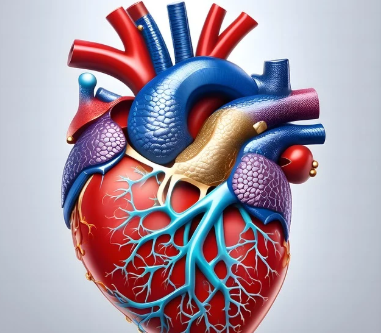
(Photo : pixabay.com)
Regenerative Breakthrough: Artificial Hearts Aid Muscle Growth
- Researchers have discovered that some artificial heart patients can regenerate heart muscle.
- The study used carbon dating to track new cell generation, revealing a regeneration rate six times higher than healthy hearts.
- Bioelectronics, replicating neural signals, could control activity in dysfunctional neural circuits causing disease.
- The study's findings could lead to new treatments for heart failure, but more research is needed.
In a groundbreaking study, researchers from the University of Arizona's College of Medicine have discovered that some people with artificial hearts can regenerate heart muscle. This revelation could potentially pave the way for new treatments and even a cure for heart failure, a condition that currently has no cure. The treatment for advanced heart failure often involves a transplant or a pump replacement via an artificial heart, known as the left ventricular assist device (LVAD), which aids the heart in pumping blood.
The research team, which included scientists from Sweden and Germany, used an innovative method of carbon dating human heart tissue to track whether these samples contained newly generated cells. The results, published in the journal Circulation, showed that people with these artificial hearts could regenerate muscle cells at more than six times the rate of healthy hearts.
Hesham Sadek, director of the Tucson's Sarver Heart Center at the University, stated, "This is the strongest evidence we have, so far, that human heart muscle cells can actually regenerate, which really is exciting, because it solidifies the notion that there is an intrinsic capacity of the human heart to regenerate."
The Role of Bioelectronics in Heart Health
The human body houses its own natural pacemaker - a network of biological wires we call nerves that send electrical signals, along with chemical messages, to all of the major organs and tissues in your body. In the past 20 years, a field known as bioelectronics has been attempting to directly tap into these signals.
Bioelectronic devices are an evolution from the pacemaker industry. They attempt to replicate neural signals, interfacing with the body to control activity in dysfunctional neural circuits that give rise to disease. Deep brain stimulators are a well-known example of such devices and have been used to help control the tremors, rigidity and movement problems associated with Parkinson's disease by sending an electrical signal into the brain. Neurostimulation devices have also been used to treat conditions such as epilepsy in situations where drug treatment has failed.
The newly developed microcurrent applicator - developed by Berlin Heals GmbH - has now been successfully used in humans for the first time by the Division of Cardiac Surgery at MedUni Vienna/Vienna General Hospital, led by Günther Laufer, in collaboration with the Division of Cardiology (Head: Christian Hengstenberg), in the context of a study.
Understanding the Heart-Kidney Link and Infective Endocarditis
Infective endocarditis (IE) is a potentially fatal inflammation of your heart valves' lining and sometimes heart chambers' lining. This occurs when germs (usually bacteria) from elsewhere in your body enter your bloodstream and attach to and attack the lining of your heart valves and/or chambers. Infective endocarditis is also called bacterial endocarditis (BE) or acute, subacute (SBE) or chronic bacterial endocarditis.
Infective endocarditis causes growths (vegetations) on the valves, produces toxins and enzymes that kill and break down the tissue to cause holes in the valve, and spreads outside your heart and blood vessels. The resulting complications are embolism of material from the vegetation can get in the way of blood flow.
Endocarditis happens to twice as many people assigned male at birth than people assigned female at birth. Also, people older than 60 make up more than 25% of cases.
* This is a contributed article and this content does not necessarily represent the views of btin.co.in









